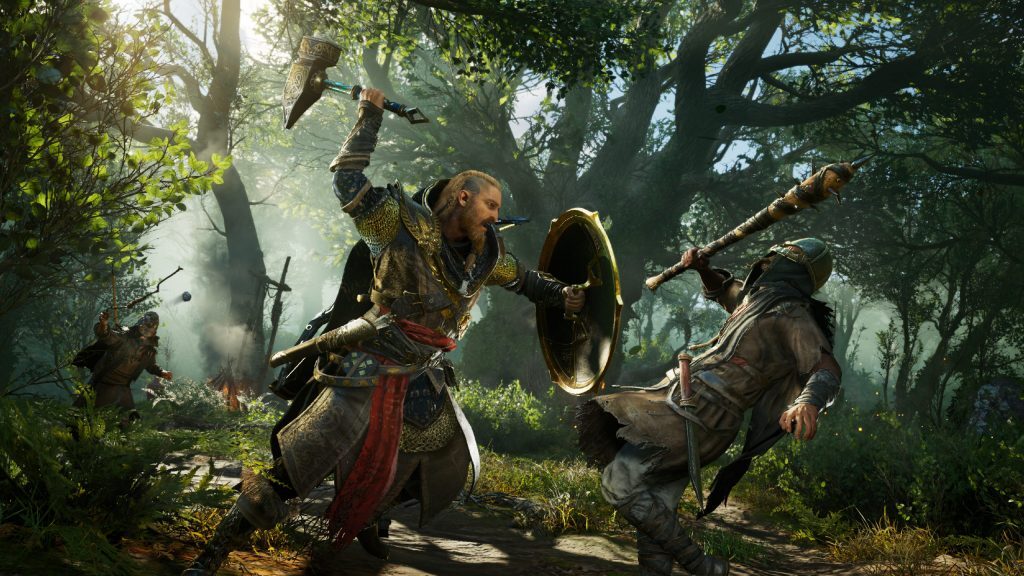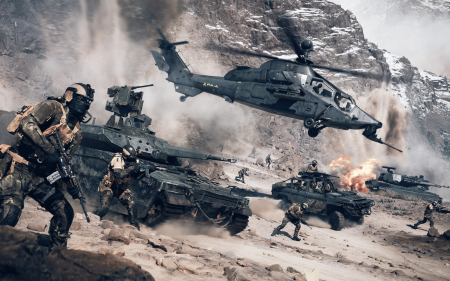If you've ever wanted to be a merciless vikingr, a warrior-poet and a savvy diplomat by turns (albeit one with the threat of violence hovered ever in the background), then Assassin's Creed Valhalla is for you. And if you just can't get enough of entertainingly reconstructed ancient worlds, this is also the perfect place to end 2020.
-
Variety
-
Combat
-
Wordplay
It’s pretty common knowledge that Ubisoft’s headline games tend to be a little… similar. Which can be an issue at times and then there are times when the company’s incremental game development approach spits out something like Assassin’s Creed Valhalla.
Though it’s not functionally all that different from Assassin’s Creed Origins or Assassin’s Creed Odyssey, it’s also just a little better than both of those titles. And it’s not because of any massive gameplay changes between the earlier titles set in epic locations and riddled with mythology — it’s mostly a matter of how everything is put together.
Ye saga begins
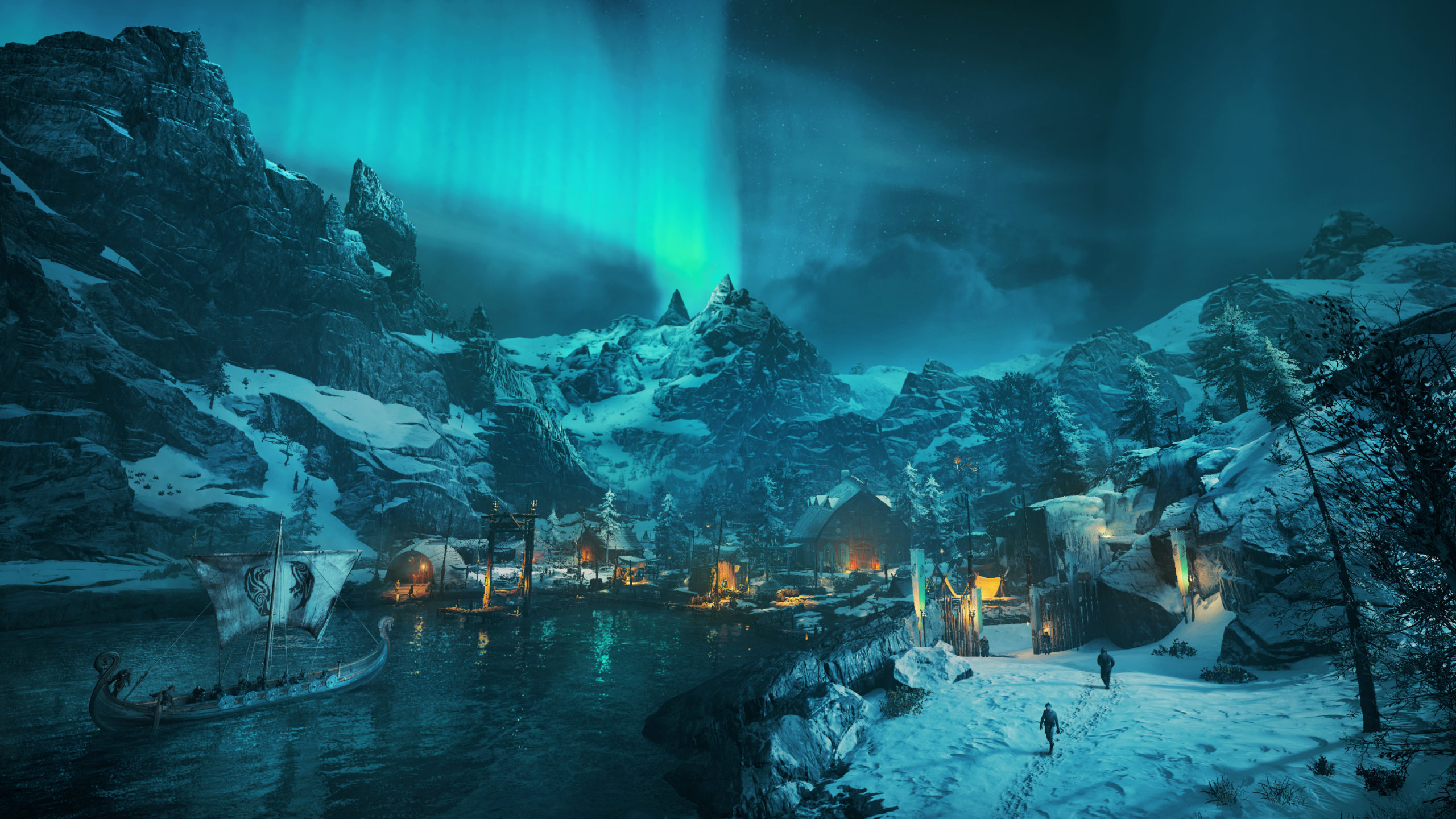 Players take on the role of one Eivor Wolf-Kissed, a drengr (or warrior) who had a brief, traumatic as a child with the Order of the Ancients, a group that eventually goes on to be the force opposing the titular assassins. There’s a dead parent, a spot of adoption and then players are plunked into the world of Norwegian politics circa 873CE. Which involves a lot of honour, adherence to a specific code, the occasional civilised meeting, the odd holmgang (or duel) and a not-too-surprising amount of leaping off your longboat and setting fire to things.
Players take on the role of one Eivor Wolf-Kissed, a drengr (or warrior) who had a brief, traumatic as a child with the Order of the Ancients, a group that eventually goes on to be the force opposing the titular assassins. There’s a dead parent, a spot of adoption and then players are plunked into the world of Norwegian politics circa 873CE. Which involves a lot of honour, adherence to a specific code, the occasional civilised meeting, the odd holmgang (or duel) and a not-too-surprising amount of leaping off your longboat and setting fire to things.
Somewhere in here, players encounter actual assassins, presumably from Masyaf about 200 years before the birth of Altaïr Ibn-La’Ahad. Things get rather political, eventually, but the game eases into this. For much of the early stages of play, you’re concerned with blood, violence and vengeance. Worrying about alliances… that comes later.
Have a care, warrior
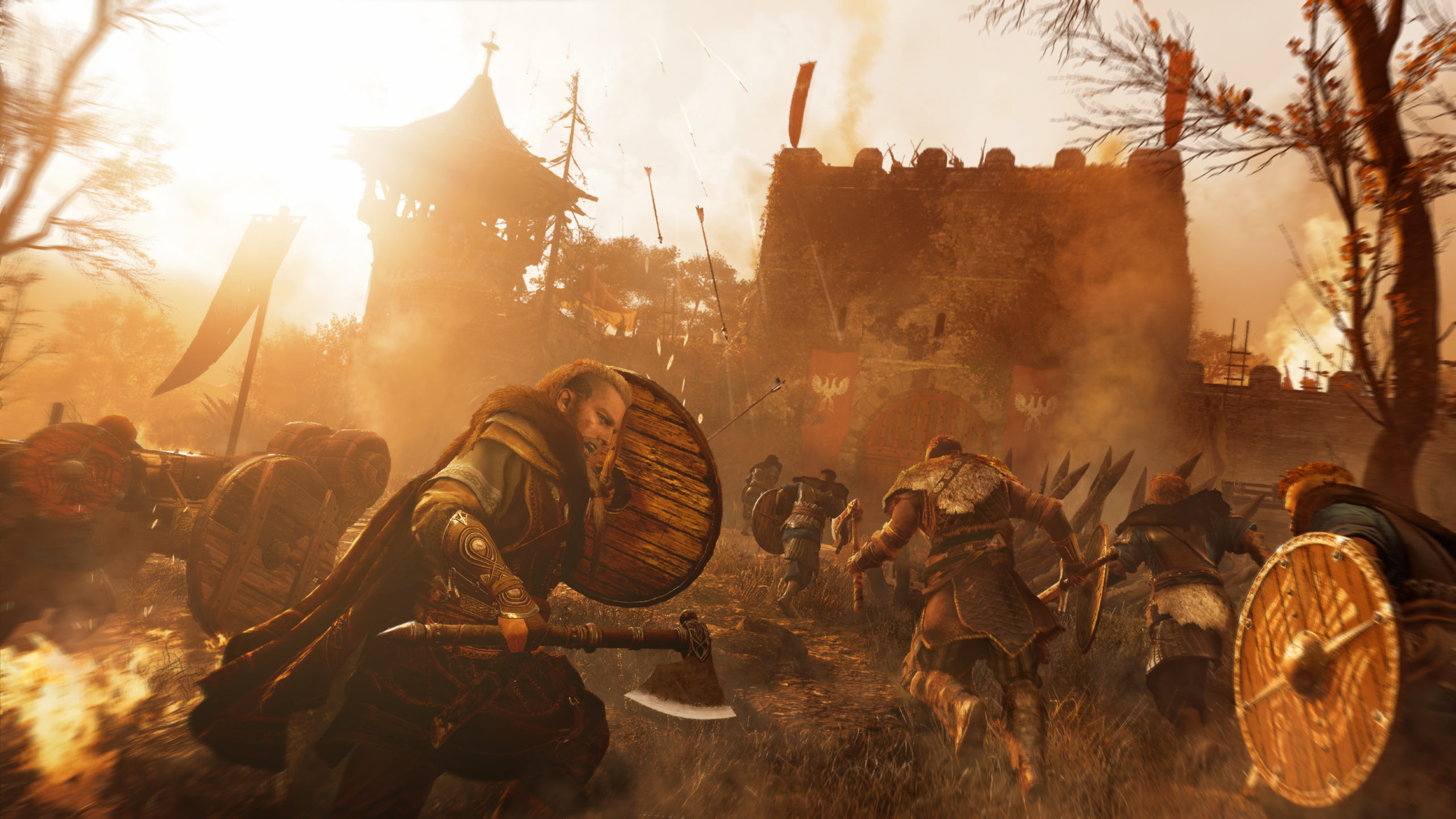 And, honestly, it can bloody wait. Valhalla‘s setting, both in Norway and in England before there was a lone monarch, is wonderfully made. Assassin’s Creed Unity gets a lot of flack from critics but, launch glitches aside, the game did one thing well. Its depiction of Revolution-era France was incredibly detailed and immersive. There’s a very similar feeling when you’re exploring the kingdoms of Mercia, Wessex, East Anglia or Northumbria — the landscape feels… curated, almost. Everything feels so naturally-occurring that you know substantial effort when into placing this rock or that tree or this crumbling Roman ruin just so.
And, honestly, it can bloody wait. Valhalla‘s setting, both in Norway and in England before there was a lone monarch, is wonderfully made. Assassin’s Creed Unity gets a lot of flack from critics but, launch glitches aside, the game did one thing well. Its depiction of Revolution-era France was incredibly detailed and immersive. There’s a very similar feeling when you’re exploring the kingdoms of Mercia, Wessex, East Anglia or Northumbria — the landscape feels… curated, almost. Everything feels so naturally-occurring that you know substantial effort when into placing this rock or that tree or this crumbling Roman ruin just so.
This is helped along by very natural-feeling interactions with the land. There are World Encounters scattered all over the place — some serious and some awfully silly — that see your Eivor interacting with all manner of Anglo-Saxons, Danes or Norsemen. They’re wholly optional but, almost without exception, they feel like they should be there. Plus, there’s loads of XP to be had, and that extensive upgrade tree — while almost comically overblown — won’t fill itself up. And you need to fill it up — some areas of the game’s map are locked off unless you’re sufficiently powerful.
Places to go, people to see
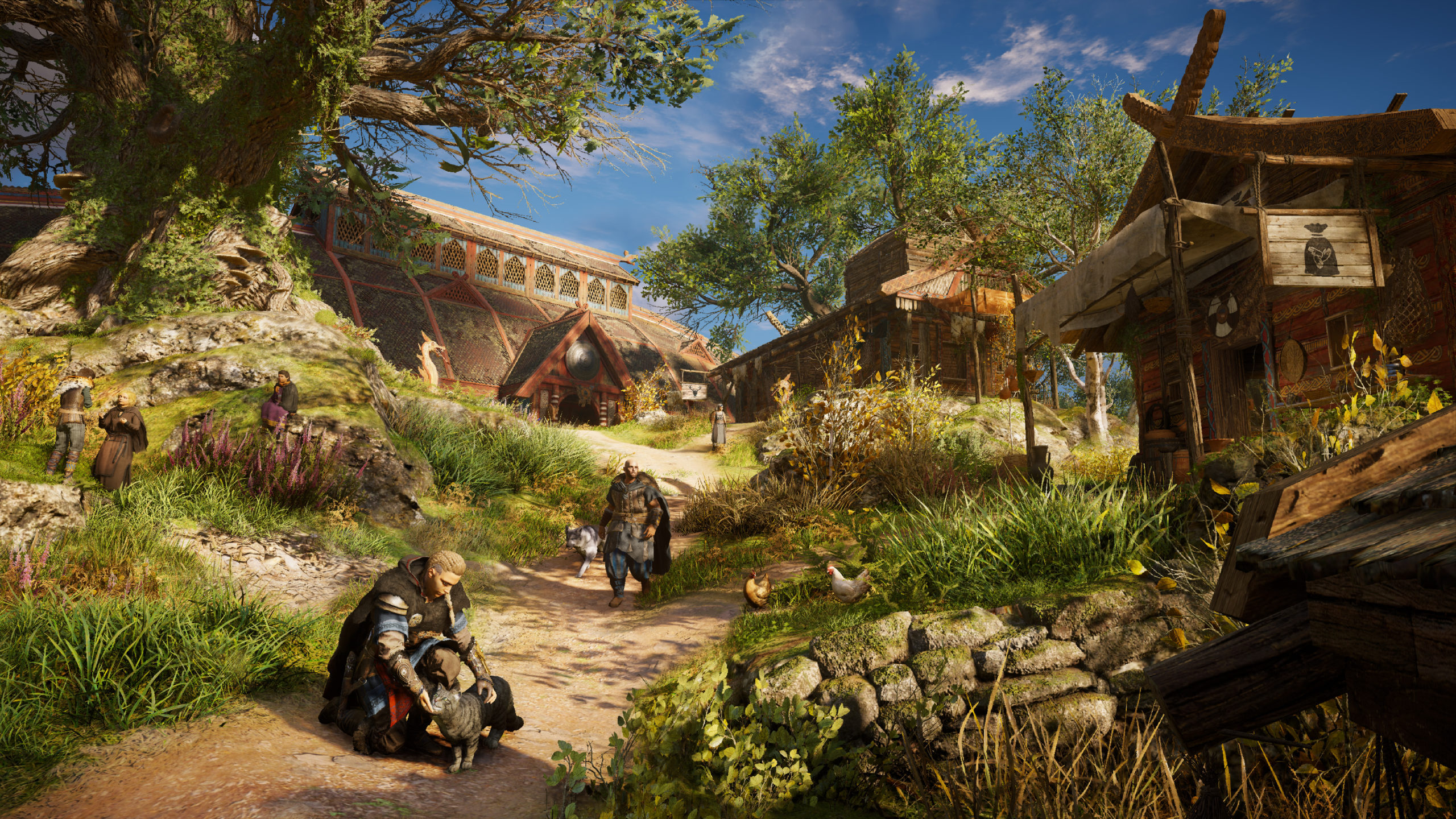 One of those places, appropriately, is Valhalla itself. We won’t spoil the quest but eventually, you get to explore Valhalla, and a few of the other realms of Norse mythology. Normally this would come about as DLC for the game, if the patterns for previous Assassin’s Creed releases were adhered to, but Ubisoft has made this journey part of the surprisingly convoluted, dramatic plot.
One of those places, appropriately, is Valhalla itself. We won’t spoil the quest but eventually, you get to explore Valhalla, and a few of the other realms of Norse mythology. Normally this would come about as DLC for the game, if the patterns for previous Assassin’s Creed releases were adhered to, but Ubisoft has made this journey part of the surprisingly convoluted, dramatic plot.
There’s also Norway and England and its many shires (no hobbits that we can see, sorry). And then there’s your village, which upgrades as you play. As players progress and choose which buildings should be built (or, rather, in which order), more residents move in and more quests tied to the village appear. These all deepen the attachment you have to your village and its people, since you’re basically single-handedly looking after all of them. Well, kinda single-handed. You’ve also got a longboat of raiders to help… liberate… supplies for expansion.
The glory of battle
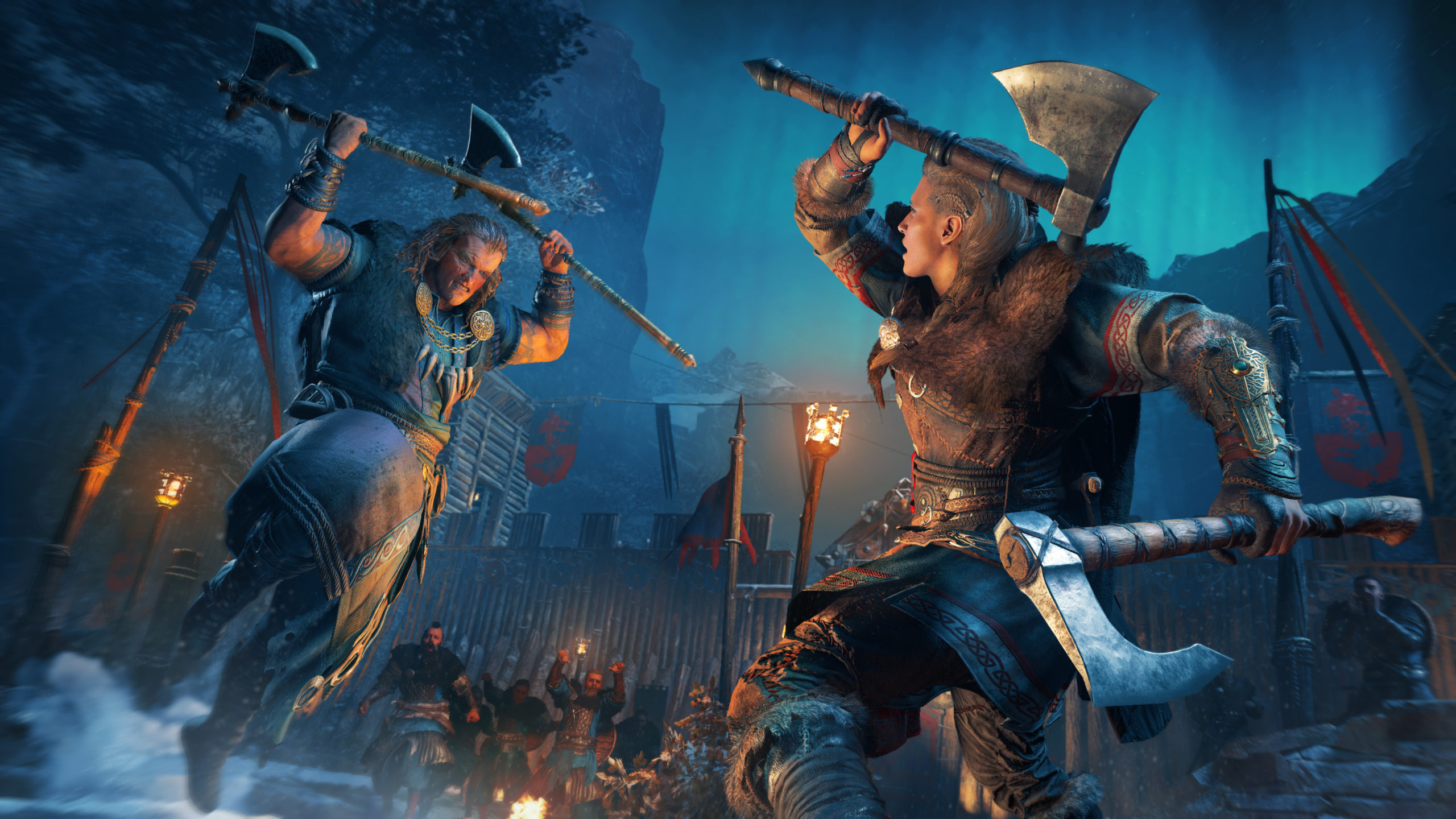 And combat, particularly raids, is one of the best parts of Valhalla. Raids, in particular, see your longboat arrowing towards shore, where all of your Viking warriors leap out and rush ashore — killing, burning, pillaging and basically being incredibly obnoxious. These sections, particularly when you go after the various monasteries for essential supplies, tend to be thrilling — if a little repetitive after about hour 25. Still, it’s always a blast rushing in and wrecking things.
And combat, particularly raids, is one of the best parts of Valhalla. Raids, in particular, see your longboat arrowing towards shore, where all of your Viking warriors leap out and rush ashore — killing, burning, pillaging and basically being incredibly obnoxious. These sections, particularly when you go after the various monasteries for essential supplies, tend to be thrilling — if a little repetitive after about hour 25. Still, it’s always a blast rushing in and wrecking things.
Particularly since combat alters considerably based on your weapon choices. You can sword-and-board if you like, go two-handed or dual-wield — we ran around with a couple of axes for the most part — but it affects things like your available strikes, special attacks and the special animations — aside from those you get from stealing an enemy’s weapon and executing them with it. Though violent, combat strangely never feels gratuitous. It’s just what you’d expect when roaming around terrifying soft and squishy Anglo-Saxons.
Your softer side
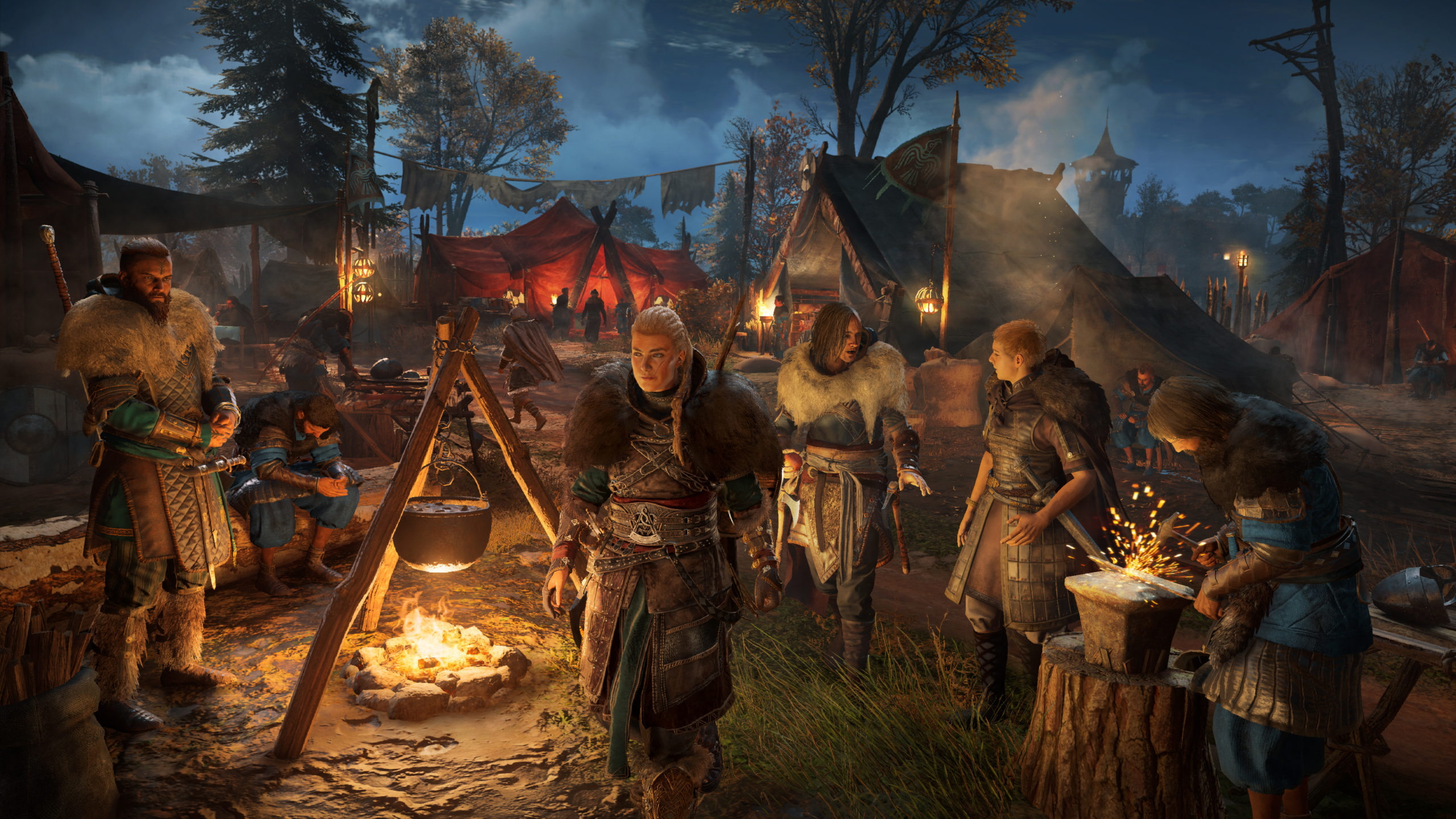 There are some… weirder aspects of Norse society on display as well. There’s a dice-and-token game called Orlog (which is appropriately close to the Dutch/Afrikaans oorlog, or war) which clearly hopes to emulate the success of Gwent (there’s a lot of The Witcher III in Valhalla’s DNA).
There are some… weirder aspects of Norse society on display as well. There’s a dice-and-token game called Orlog (which is appropriately close to the Dutch/Afrikaans oorlog, or war) which clearly hopes to emulate the success of Gwent (there’s a lot of The Witcher III in Valhalla’s DNA).
There’s also flyting, which is a kind of rap-battle scenario, if said battles were scripted by Shakespeare. Briefly, two opponents face off and attempt to insult each other — in as good-natured a manner as we’ve ever seen when questioning someone’s mother, manhood and intelligence — with money often riding on the outcome. Participating in flytes also increases Eivor’s Charisma score, which opens new dialogue options in the game. This is the only way to up Charisma, even if it feels a little like the Insult Sword Fighting section of Monkey Island.
Players can also lavish attention on their beards, hair, tattoos, decorative elements around their village, or run around hunting anything that moves. Indeed, epic animals are also in Valhalla — they’re less of a righteous bastard to kill than in Odyssey, thankfully.
Assassin’s Creed Valhalla Verdict
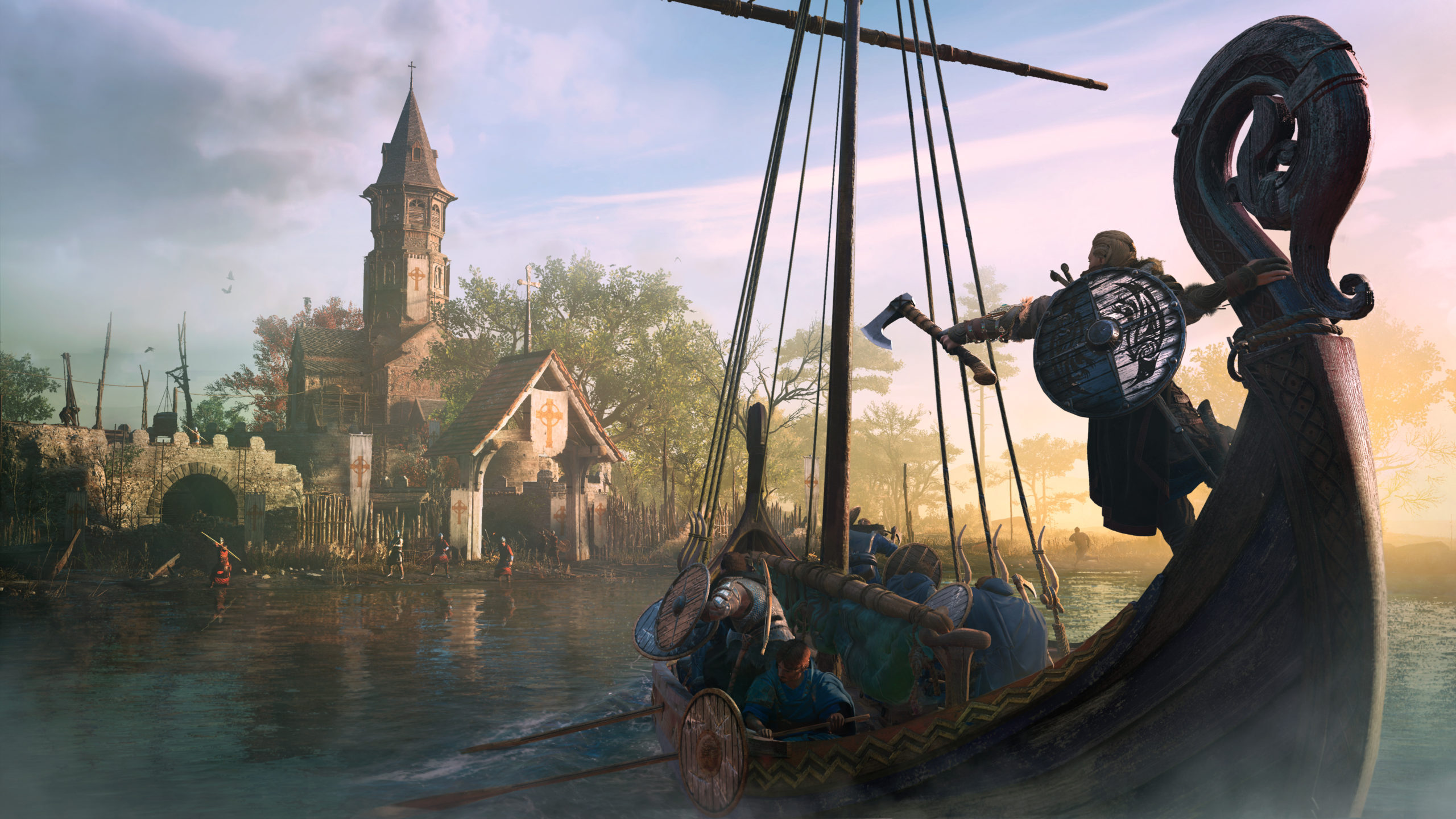 Assassin’s Creed Valhalla, had it come out before Origins or Odyssey, would have been hailed as an incredible title — ambitious and with the ability to actually pull off its ambitions. We’ve already seen a lot of what it can do, and that’s taken a little of the shine off. But Ubisoft’s foray into the age of Vikings is an excellent one, easily the best release of the last three. Even though we’ve got a soft spot for Bayek’s adventures in Egypt, this outing in search of unguarded is just a little bit better.
Assassin’s Creed Valhalla, had it come out before Origins or Odyssey, would have been hailed as an incredible title — ambitious and with the ability to actually pull off its ambitions. We’ve already seen a lot of what it can do, and that’s taken a little of the shine off. But Ubisoft’s foray into the age of Vikings is an excellent one, easily the best release of the last three. Even though we’ve got a soft spot for Bayek’s adventures in Egypt, this outing in search of unguarded is just a little bit better.

